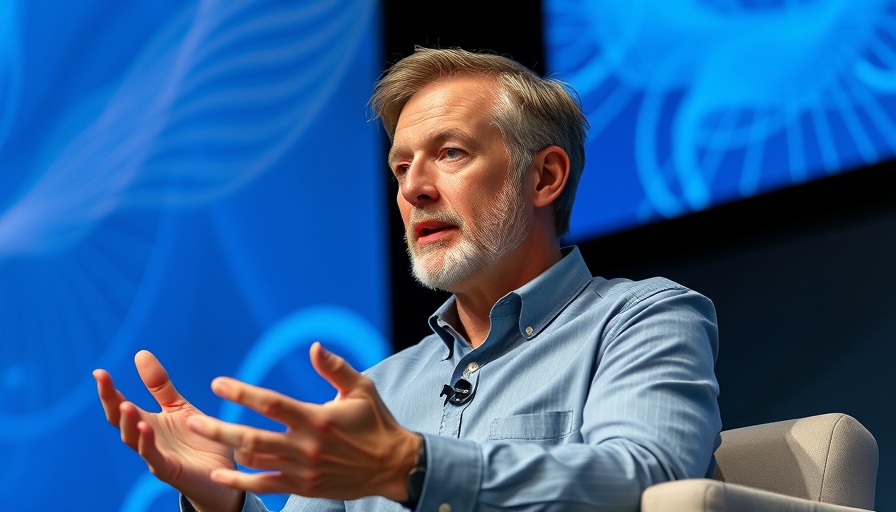
Exploring the Intersection of Faith and Science
As we delve into the complex relationship between faith and science, one fundamental question arises: how can these two seemingly disparate realms coexist? This contemporary issue is not new; it has plagued thinkers for centuries, particularly in light of Darwin's assertion regarding evolution and the nature of human reason. His concern revolves around the notion that if humans have evolved through a 'blind, purposeless, unguided' process, can we trust our rational mind's conclusions? This question lays the groundwork for a deeper exploration of how faith can interweave with scientific inquiry.
In 'How Do We Reconcile Faith And Science,' the discussion dives into the relationship between these two vital areas, exploring key insights that sparked deeper analysis on our end.
Historical Perspectives on Faith and Science
The historical context is vital in understanding the current discourse on faith and science. Throughout history, numerous scientists were also devout believers. Figures like Copernicus, Galileo, and Isaac Newton made groundbreaking contributions to our understanding of the universe while maintaining their faith in God. They did not perceive a conflict between their scientific work and religious beliefs. Instead, many saw their scientific pursuits as a way to uncover the intricacies of God's creation. This perspective invites us today to reevaluate the potential harmony that exists between faith and scientific exploration.
The Orderly Universe: A Biblical Perspective
From a biblical standpoint, the universe is described as orderly, with God establishing natural laws that govern creation. Genesis illustrates this order, where God systematically creates the world in six days. This orderly approach suggests that one cannot fully engage in scientific pursuits without recognizing a divine hand at work. Darwin's concerns about the chaos of a godless world prompt believers to argue that science finds its true meaning and purpose within the framework of faith. This view posits that a harmonious relationship can exist, where both faith and science contribute to our understanding of reality.
The Conflict Thesis: Understanding Counterarguments
Despite the historical connections between faith and science, the so-called "conflict thesis" has emerged, promoting the idea that these two spheres are inherently incompatible. This perspective has been argued by many skeptics who emphasize the advancements made exclusively through scientific inquiry, often neglecting the significant contributions from religious thought throughout history. Understanding these claims allows us to engage thoughtfully with those who question the integration of faith and science, fostering a broader dialogue about their possible coexistence.
Implications for Today's Youth and Educators
For today's youth and educators, navigating the waters of both faith and science can be challenging. Students might feel pressured to choose between their religious beliefs and scientific reasoning, often resulting in internal conflicts. Church leaders and parents play a crucial role in helping guide the younger generation through these discussions, ensuring they understand that embracing scientific knowledge does not require the abandonment of faith. Facilitating open conversations about faith and science can empower young people to explore and develop their beliefs without fear of contradiction.
Encouraging Dialogue: A Call to Action
If you resonate with the quest to reconcile faith and science, consider initiating conversations within your community. Engaging skeptics and believers alike in this dialogue can foster greater understanding and bridge gaps between differing worldviews. Hosting workshops or discussion groups can encourage critical thinking and validation of both faith and scientific viewpoints, strengthening the community's knowledge base and relational ties. In doing so, we offer a richer narrative where faith and science can coexist harmoniously, allowing individuals to flourish in their understanding of both realms.
In conclusion, the exploration of faith and science is not merely an intellectual exercise but a journey that encourages deeper understanding and engagement. The rich history behind both fields provides a foundation for believers and skeptics alike to reflect on how they can coexist in harmony. By fostering discussions that embrace both, we contribute to a narrative that values reason and revelation equally.
 Add Row
Add Row  Add
Add 








Write A Comment